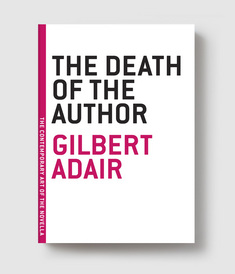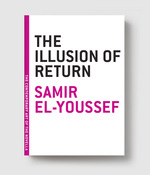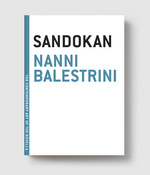
List price: $13.00
Buy
- Pages130
- ISBN9781933633572
- Publication dateJune, 2008
- Categories
- Booksellers
- Media
- Academics & Librarians
The Death of the Author
Gilbert Adair
“Funny, gripping, and very clever… A brilliant black satire on cultural cultishness… It also works brilliantly as a detective story with apparently motiveless murders.” – Philip Howard, The Times
Part murder mystery and all jet-black satire, and based on a real life scandal, this edgy novella tells the story of Léopold Sfax, world-renowned as the creator of “The Theory”—a bizarre literary theory that grew from an intellectual folly to a dominant school of criticism that enslaved college campuses across the country.
However, The Theory, which holds that the text of any piece of writing tells us all that we need to know about its author (as if the author himself is “dead”) takes on extra perversity when the revered—or is it feared?—Sfax is found to have once written something that seems…well, murderously revealing.
In the hands of Gilbert Adair, it’s a dexterously wrought and hysterically devilish look at academic cultishness. It’s also a taut metaphysical murder mystery that confounds the reader’s expectations on almost every page and reserves its most stunning surprise—the ultimate whodunit twist—for the very last page.
“Brillant, worthy of Nabokov.” – David Lodge
“The Death of the Author brilliantly combines a serious critique of a dodgy intellectual movement with a suspense-driven detective story.” – Lucasta Miller, Financial Times
“In a brilliantly exact imitaton of the style of Nabokov, Leo Sfaz recounts his life-and-death story. Once a pro-Nazi journalist in France, now an academic hero in somewhere very like Yale, he applies the fashionable technique of deconstruction (text means anything the reader wants it to mean, the author’s intentions are nothing, text does not really have authors) to conceal or invert his own ignominius past. But some neat muder mystification is found a place in this dazzling satire of literary-critical pretension.” – Anthony Quinton, Evening Standard





